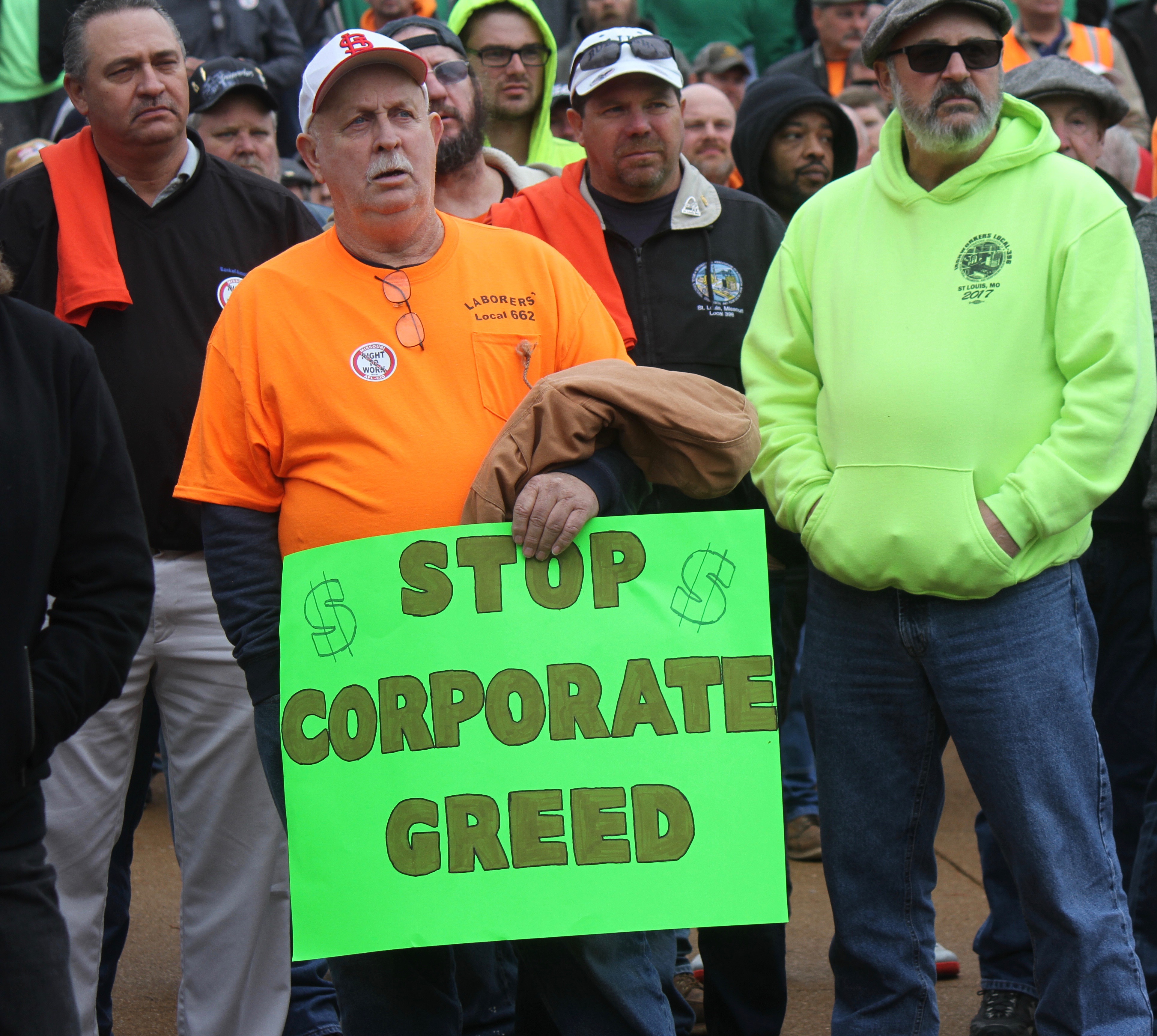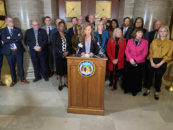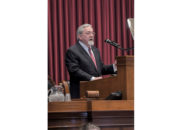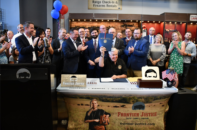Decision has no ‘significantly impact’ on Missouri’s right-to-work ballot measure
JEFFERSON CITY, Mo. — The U.S. Supreme Court ruled Wednesday that government workers can’t be forced to contribute to labor unions that represent them in collective bargaining.
The 5-4 decision along ideological lines gets rid of the fair share fees that non-members pay to unions in 23 states. The court ruled that the laws violate the First Amendment by compelling workers to support unions they may disagree with.
“States and public-sector unions may no longer extract agency fees from nonconsenting employees,” Justice Samuel Alito said in his majority opinion for the court’s five conservative justices.
The court has long held that requiring non-union members to pay the full amount of union dues would violate their right of free expression, forcing them to subsidize a union’s political activities whether they agree with its goals or not.
But in 1977, the Supreme Court said non-union employees could be required to pay a portion of union dues, known as agency fees or fair share fees, to cover the cost of collective bargaining and prevent “free riders” — workers who get the benefits of a union contract without paying for it.
The high court’s ruling in Janus v. AFSCME on Wednesday overturned that earlier decision.
The unions argued that fair share fees pay for collective bargaining and other work the union does on behalf of all employees, not just its members.
A recent non-partisan study predicted that a Supreme Court defeat would eventually cause public employee unions to lose 726,000 members, a significant blow in one of organized labor’s remaining strongholds. Nearly half of all union members in the U.S. are government employees.
“There is no sugarcoating today’s opinion. The majority overthrows a decision entrenched in this Nation’s law – and its economic life – for over 40 years. As a result, it prevents the American people, acting through their state and local officials, from making important choices about workplace governance. And it does so by weaponizing the First Amendment, in a way that unleashes judges, now and in the future, to intervene in economic and regulatory policy,” Justice Elena Kagan wrote in dissent. Three other justices joined the dissent.
More than half the states already have right-to-work laws banning mandatory fees, however, Missouri is not one of those states.
Sen. Bob Onder tweeted that the Supreme Court’s decision was “A great victory for American government workers, along with MO’s HB 1413!”
HB 1413, sponsored by Rep. Jered Taylor, passed the Missouri General Assembly during the 2018 legislative session and requires annuals authorization for some public employee labor unions to use dues and fees to make political contributions and requires consent for withholding earnings from paychecks. The bill was approved by then-Gov. Eric Greitens.
“The Supreme Court decision in favor of worker’s freedom is a step in the right direction, but now Missouri needs to follow suit and ensure that workers aren’t forced to pay dues by voting #YesOnPropA in August,” the Missouri Republican Party tweeted following the opinion.
Proposition A, as it will appear on the August primary ballot, is Missouri’s attempt to become a right-to-work state. The law was signed by Greitens in February 2017, but labor unions and their supports subsequently gathered the needed to signatures to put the issue to a statewide vote. In fact, they gathered nearly three times the number of needed signatures.
While the Supreme Court decision does involve labor unions and fees, it doesn’t directly have an impact on Missouri’s right-to-work ballot measure.
“The SCOTUS ruling in Janus applies to state action, specifically state laws that require public employees to pay fees to the union. Proposition A has to do with prohibiting private employers from entering into agreements with their private employees,” said Chuck Hatfield, an attorney based in Jefferson City. “Although they both involve payments to unions, the legal issues are completely different. The Janus decision doesn’t significantly impact Proposition A.”
“While today’s ruling applies to public employee unions, Missourians have the opportunity on August 7 to extend this same protection to private businesses across the state,” said Daniel P. Mehan, President and CEO of the Missouri Chamber of Commerce and Industry, said in a statement. “We urge Missouri voters to vote ‘yes’ on Proposition A, end compulsory union payments and finally bring Freedom to Work protections to our state.”

Alisha Shurr was a reporter for The Missouri Times and The Missouri Times Magazine. She joined The Missouri Times in January 2018 after working as a copy editor for her hometown newspaper in Southern Oregon. Alisha is a graduate of Kansas State University.










